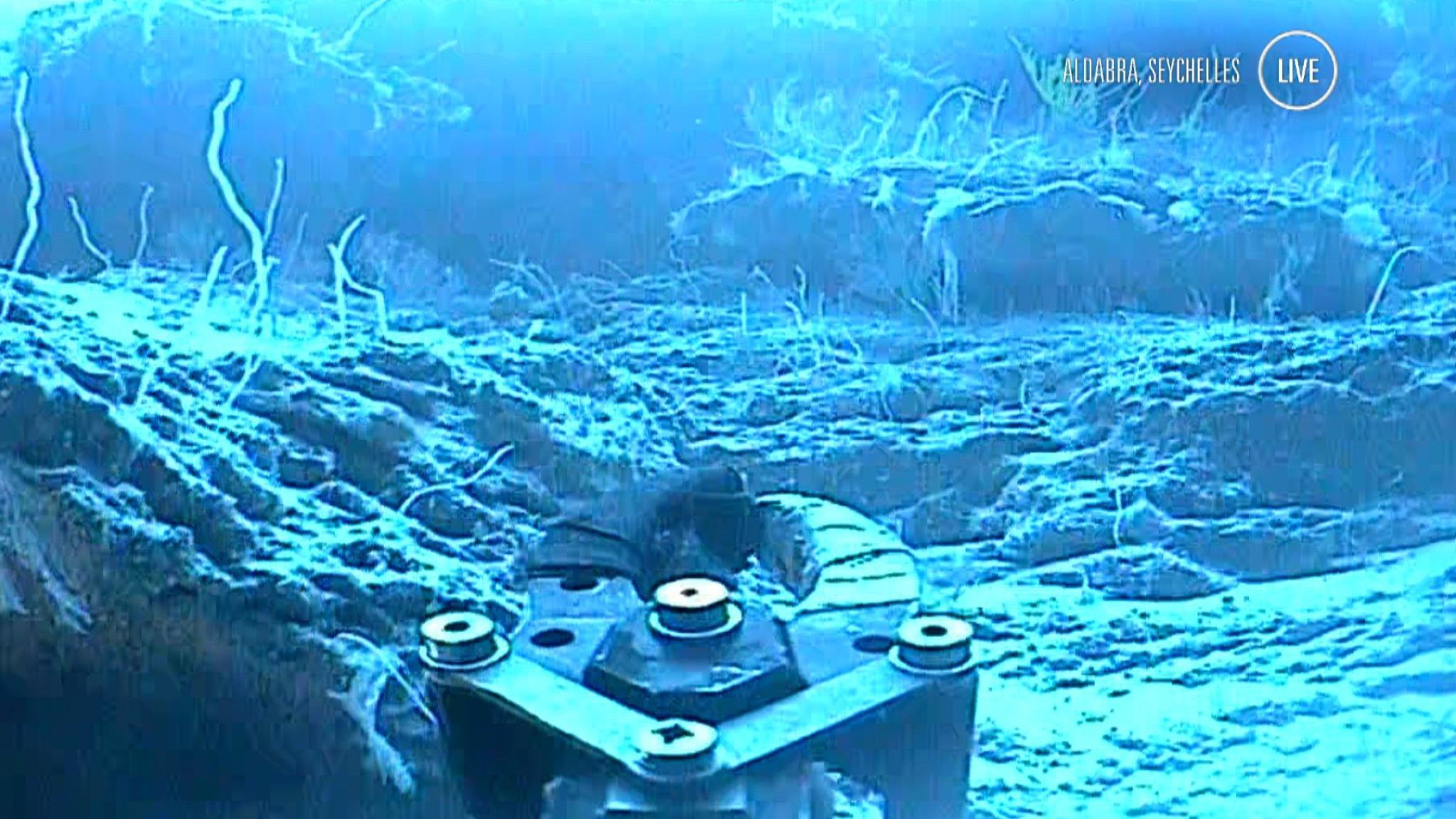Scientists are confident they will identify new species in the waters around the remote coral atoll of Aldabra.
Marine biologists on the Nekton mission are using high definition video recordings to identify the amount and variety of life.
They are also taking samples for identification in the lab on their mothership.
The submersible carrying Sky presenter Anna Botting collected a sponge from a steep wall 150m (492ft) below the surface.
The pilot, Randy Holt, used the robotic claw to grab the sponge and place it in a “biobox” on the sub’s exterior to carry it safely to the surface.
He told Sky News that the arm was “all elbows”, but manoeuvring the sub allowed him to grab the sponge.
“There are permits that allow the scientists to collect samples from certain depths”, he said.
“Each of those samples has a lot of different organism, not only within them but living on them.
“So when we collect one sample we are collecting dozens of different organism.”
Scientists must extract DNA from the samples as quickly as possible. As soon as deep ocean specimens are brought up to the warm surface layer of water, and then the open air, the genetic material begins to deteriorate.
The DNA can be used to identify the species or sub-species.
The sample is also preserved in ethanol for further study.
Louise Allcock, from the National University of Ireland Galway, said the sponge would be sent to a specialist in Australia for identification.
“It’s a voyage of discovery,” she said.
“But I think it is almost inevitable that we will find new things.
“Some species are global, so we will find things that are known throughout the Indian Ocean.
“We will even find things probably that occur in the Pacific as well.
“But we will also find things that are absolutely unique to this region.”
The ocean forms 99% of all the living space on the planet.
Marine biologists used to think the greatest biodiversity was found in the sunlit, or altiphotic, layer.
But some believe there may be many more species in the deep.
It’s only now that scientists can use relatively affordable submersibles to explore waters below scuba diving depth that the species are within reach.
Deep Ocean Live coverage will be broadcast on Sky News from the Seychelles at 8am on Tuesday. A highlights programme will air at 8pm.
Sky’s Ocean Rescue campaign encourages people to reduce their single-use plastics. You can find out more about the campaign and how to get involved at www.skyoceanrescue.com.
Written by: Thomas Moore
Source:
Sky News
Footnote:
Contact Seal Superyachts Seychelles for detailed information about cruising around Seychelles, superyacht charter regulations and about how we can support your visit.
Principle agent Alastair Maiden is proud to have worked with many of the World’s largest Superyachts and has extensive knowledge of Seychelles and the surrounding area.
Alastair Maiden
Phone: +248 251 5051
Email: seychelles@seal-superyachts.com
